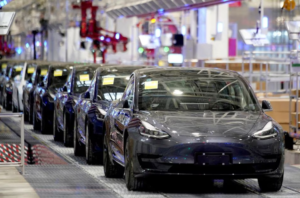In the wake of Tesla’s imminent establishment of its inaugural factory in India, local automakers are fervently stepping up their endeavors in the realm of electric vehicles (EVs).
Anand Mahindra, the chairman of the multifaceted conglomerate Mahindra & Mahindra, spanning the domains of automobiles and hospitality, is propelling the company’s ambitious foray into electric SUVs with a substantial investment commitment of $1.2 billion spread over the coming seven years. August witnessed an agreement with Singaporean state investor Temasek Holdings, who pledged $145 million for a modest stake in Mahindra Electric Automobile, thereby appraising the company’s EV subsidiary at an impressive valuation of nearly $10 billion.
Based in Mumbai, this conglomerate, renowned as the nation’s top revenue-generating SUV manufacturer, embarked on the sales journey of its inaugural electric SUV, the XUV 400, in January of this year, achieving remarkable success with 10,000 bookings recorded over a single weekend. Their highly anticipated Born Electric SUV series remains in the developmental phase, with production expected to commence next year, featuring a roster of five models slated for release by 2027.
In line with their vision for the future, this automaker, aspiring to have environmentally friendly SUVs constitute a substantial portion, between 20% and 30%, of their total SUV sales by 2027, is diligently establishing a state-of-the-art manufacturing facility within their native Maharashtra, located in western India. This facility is poised to yield a significant annual production capacity of 200,000 EVs by the year 2027. Mahindra has already emerged as the dominant force in India’s electric three-wheeler market, boasting an impressive market share exceeding 65%. Their forward momentum includes an expansion plan involving their tractor factory in the southern state of Telangana, where they are gearing up to commence the production of electric three-wheelers commencing in the upcoming year.
In their pursuit to catch up with the formidable Tata Motors, India’s principal electric car manufacturer, wielding four electric models and an imposing market share of over 70%, Mahindra is striving diligently. It’s important to note that the electric vehicle landscape in India is still in its nascent stages, accounting for merely 2% of total car sales. Nevertheless, the government has articulated an ambitious vision of elevating this percentage to 30% by the year 2030. “The electric vehicle race in India is in its early stages,” observes Hormazd Sorabjee, the editor of Autocar India, a prominent monthly automotive magazine. He underscores that a primary challenge on the road ahead is the nascent state of the charging infrastructure in the country.
Fueled by robust sales of SUVs and tractors, the company’s leading entity saw a remarkable 34% surge in revenue, reaching an all-time high of 1.2 trillion rupees (equivalent to $14.5 billion) in the fiscal year concluding on March 31. This exceptional performance translated into a staggering 56% increase in net profit, reaching 10.3 billion rupees. Consequently, this outstanding financial success led to an 18% rise in Mahindra’s total wealth, which now stands at $2.6 billion.
(Source: Anu Raghunathan | Forbes)









